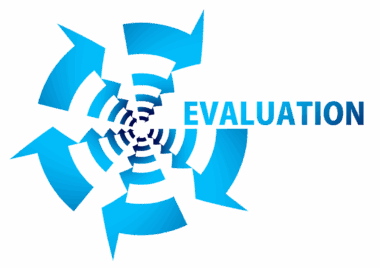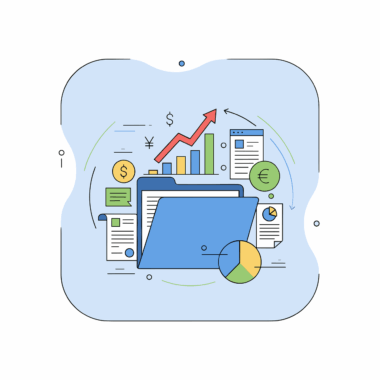The Role of AI in Modern Performance Appraisal Software
In today’s rapidly evolving digital landscape, artificial intelligence (AI) is increasingly becoming a pivotal component in performance appraisal software. Organizations are recognizing that traditional performance reviews often lack the nuance and depth needed to appropriately assess employee performance. AI provides a solution to this challenge by enabling data-driven analytics that enhance the evaluation process. Not only does AI streamline reviews, but it also helps reduce biases by standardizing evaluations based on quantifiable data. With the application of machine learning, performance appraisal software can analyze employee productivity trends, peer feedback, and project results, allowing for more accurate assessments. This data-centric approach fosters a culture of continuous improvement where employees receive constructive insights into their performance. Moreover, AI-enabled systems can identify patterns over time, leading to more informed decision-making. Consequently, organizations can better align workforce capabilities with business objectives. As companies continue to adapt to remote and hybrid work environments, the demand for advanced performance appraisal solutions will only grow. AI in appraisal software is not merely a trend; it’s a fundamental shift toward more equitable and efficient employee evaluations.
The integration of AI into performance appraisal software also empowers managers to provide timely and meaningful feedback. Instead of waiting for annual reviews, AI systems can facilitate continuous performance conversations by tracking and analyzing real-time data. Managers can receive notifications about employee milestones, achievements, or areas needing attention, ensuring that they address performance issues as they arise. Notably, AI can generate personalized development suggestions based on individual performance history, which fosters employee growth and engagement. Furthermore, by utilizing natural language processing (NLP), AI can assist in sentiment analysis derived from employee surveys and feedback forms. This feature allows organizations to gauge employee morale and satisfaction, tying emotions back to productivity outcomes. Implementing these advanced functionalities leads to a more engaged workforce, as employees feel heard and valued. The incorporation of AI capabilities also helps organizations spot high-potential talent who might otherwise go unnoticed. Consequently, forward-thinking companies are utilizing AI-driven tools to nurture their employees, adapting their management strategies based on actionable insights gleaned from the software.
Moreover, AI enhances the objectivity of performance appraisals. Traditional methods may inadvertently reflect personal biases, which can affect promotion decisions and job satisfaction. AI algorithms analyze data consistently, minimizing disparities that can arise from human judgment. The algorithmic review process focuses on performance metrics, requiring managers and employees to rely on data rather than intuition or emotion. This helps in establishing a transparent framework for evaluations, as employees understand how scores are derived. Furthermore, AI can segment data across various demographics, ensuring that evaluations are equitable for all employees. Comprehensive feedback generated through AI algorithms can better illustrate each employee’s contribution to the organization, identifying their strengths and areas for improvement. The capability to provide comparative data between employees can further stimulate healthy competition within teams. Such analytic visibility is crucial in creating an environment where employees feel motivated to progress. As organizations increasingly adopt these tools, they will likely experience a significant shift in workplace culture, one that promotes collaboration and growth through data-driven insights and accountability.
Training and onboarding also significantly benefit from AI in performance appraisal software. Effective performance management systems can identify skill gaps and training needs, providing targeted learning opportunities for employees. By analyzing historical performance metrics, AI identifies patterns in which employees excel or struggle. This tailored approach amplifies the effectiveness of training programs, ensuring that employees gain the skills they need to advance their careers. Organizations can create personalized learning pathways based on actionable insights from the software, thus enhancing workforce competency. Additionally, AI can assist in identifying future leaders by correlating performance data with potential career trajectories. Artificial intelligence analyses data across departments and job functions to build a holistic view of employee capabilities. This information is invaluable during talent reviews and succession planning, ensuring that organizations not only retain their top talent but also prepare them for positions of increased responsibility. In this manner, the performance appraisal software becomes a strategic partner for talent development, promoting internal mobility and resource investment in high-potential employees. As AI technology evolves, its role in these processes will fundamentally alter how organizations approach performance management and employee development.
The Future of AI in Performance Management
As companies embrace the future of work, the role of AI in performance appraisal software will continue to expand. With the increasing availability of data, organizations will leverage AI to automate many of the processes that currently drain managerial resources. Predictive analytics will become integral, allowing firms to anticipate employee disengagement and turnover based on historical data. This foresight enables companies to implement retention strategies before issues arise. Moreover, with advancements in AI and natural language processing, performance appraisal software will offer increasingly sophisticated analysis of verbal and written feedback, allowing for deeper insights into employee engagement and workplace satisfaction. Additionally, organizations may utilize AI-generated reports for more strategic, actionable insights that can guide leadership decisions. Real-time dashboards will provide an at-a-glance understanding of team performance metrics, making it easier for managers to respond promptly to changing dynamics. The convergence of technology, performance management, and human resources will lead to a workplace culture driven by both data and people. As AI continues to evolve, the emphasis will be on balancing technology with the human touch needed in effective performance management.
In conclusion, the integration of AI into performance appraisal software represents a significant evolution in organizational management. AI encourages a shift from subjective evaluations to data-driven assessments, promoting fairness and transparency. As companies navigate a complex talent landscape, these tools provide structured solutions for managing performance and fostering employee growth. Not only do AI-driven solutions enhance the overall employee experience, but they also align employee performance with organizational goals, facilitating both individual and collective success. Organizations must, however, consider the ethical implications of AI adoption, ensuring that algorithms remain unbiased and transparent. Striking a balance between technological oversight and human judgment will be crucial in harnessing the best of both worlds. Furthermore, as AI technologies continue to evolve, organizations should remain adaptable, reevaluating their performance appraisal strategies to incorporate emerging best practices. Continuous improvement in performance management processes will not only strengthen teams but also enable organizations to respond dynamically to change. In a time marked by innovation, the conscious deployment of AI will empower organizations to drive engagement, productivity, and profitability in a rapidly competitive environment.
Ultimately, the role of AI in modern performance appraisal software is to create a future where performance management is more efficient, consistent, and equitable. Employers will need to invest in the right tools and training, ensuring their workforce is equipped to engage with these new technologies effectively. Successful implementations will hinge on open communication and trust between management and employees. Learning how to best utilize AI within performance appraisals will require ongoing dialogue and adaptation. Employers need to promote a culture of feedback and continuous learning, embracing the potential of AI-driven insights to generate discussions on growth and improvement. Providing employees with a voice in the process will counterbalance the technological aspects, ensuring that human insights still play a crucial role in performance management. Organizations could utilize forums or platforms where employees can discuss their evaluations transparently. This collaborative approach fosters ownership and accountability, leading to enhanced morale and productivity. As the workplace continues to transform, AI tools in performance appraisal software hold the promise of a future where every employee can thrive through data-informed guidance and recognition.
As organizations lean into technological advancements, the impact of AI on performance appraisal software will become even more pronounced. Companies will increasingly adopt AI tools that not only assist in performance reviews but can also reshape the entire employee management framework. For instance, integration with human resource management systems will allow for seamless data flow, enhancing the predictive capabilities of performance appraisal functions. Furthermore, as data storage and processing techniques improve, the breadth of information AI can analyze expands exponentially. This includes feedback from multiple sources such as colleagues, clients, and self-evaluations, leading to comprehensive insight. Enhanced analytics will facilitate organizations in identifying training needs, engagement levels, and even cultural fit, directly correlating appraisal data with broader organizational outcomes. In addition, organizations will benefit from AI’s capacity to personalize performance management strategies, tailoring processes to individual employee requirements. The use of AI in this field also allows for benchmarking performance across various functions or industries. By setting clear standards and expectations, companies can create a more structured and informed appraisal process that increases employee satisfaction and drives results.








